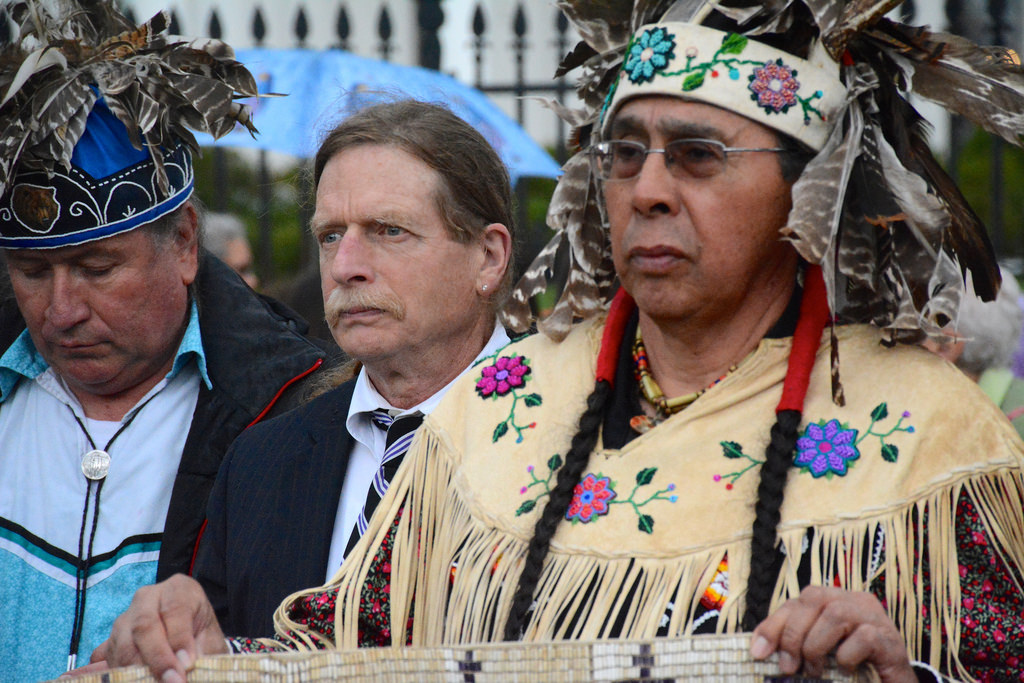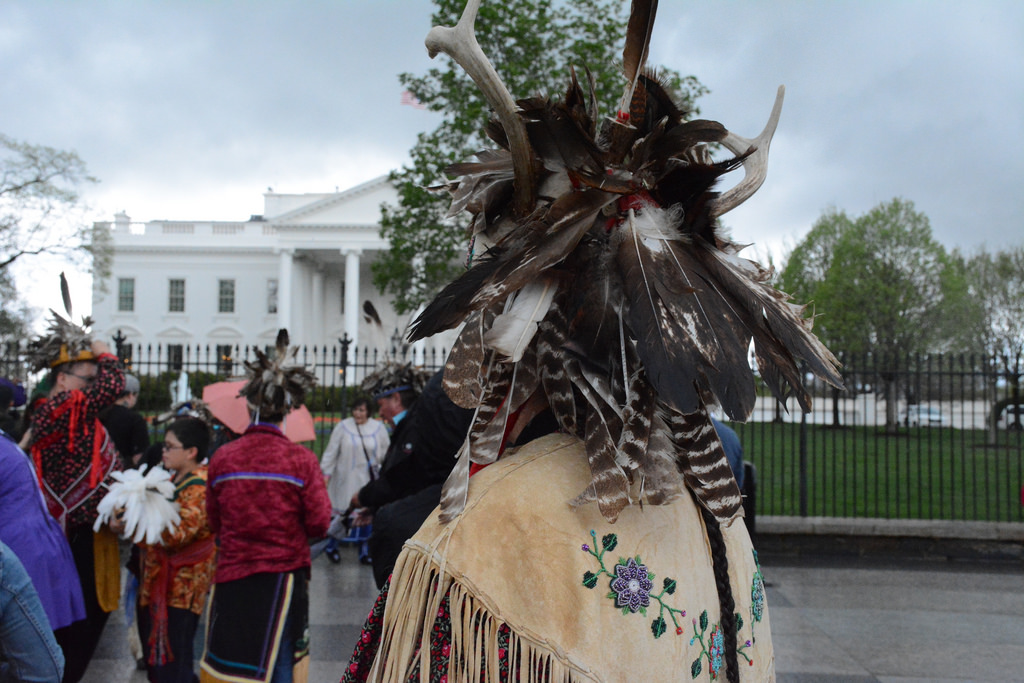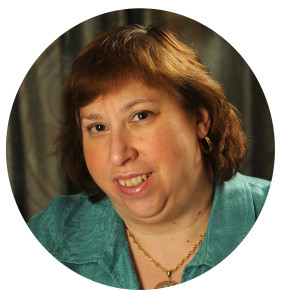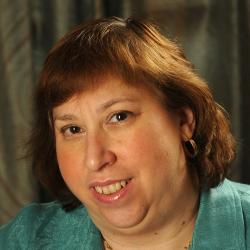Tadodaho Sid Hill isn’t hopeful that filing a petition against the United States in an international forum will return land to the Onondaga people. But he hopes it will remind the world that indigenous peoples have rights and deserve to be heard.
“It says, ‘We’re still here, and we’re not going away,’” Hill, spiritual leader of the Onondaga Nation, told the Syracuse New Times.
Joe Heath, lawyer for the Onondaga Nation, filed a petition on Tuesday, April 15, with the Inter-American Commission on Human Rights. The petition says New York illegally took 2.5 million acres from the Onondaga Nation since 1788. Because the Supreme Court rejected the Onondaga Nation’s land claim suit in October, Onondaga leaders say, they have no choice but to take the case to an international forum.
Onondaga leaders and supporters demonstrated that same Tuesday in front of the White House. They carried a wampum belt President George Washington commissioned for the Onondaga Nation as a sign of peace and friendship in ratifying the 1794 Treaty of Canandaigua.
The petition says the illegal taking of Onondaga homelands led to damage to the land. The damage cited includes chemical pollution of Onondaga Lake, salt mining in the Tully Valley, channelization of Onondaga Creek and damage to other lake tributaries. The petition also says the United States violated the human rights of the Onondagas’ right to property, equality and judicial process.
The Supreme Court announced on Oct. 15, 2013, it would not hear an appeal of the Onondaga Nation’s land claim suit, first filed in March 2005. The Supreme Court said the Onondagas waited too long “between a historical injustice and the present day” to file a claim and said a ruling favoring the Onondagas would be “disruptive.”
Those were the same reasons given for in the dismissal of land claim suits by the Cayuga and Oneida nations. The ruling set up a system in which Native communities will never be able to get justice, Heath said.
The Inter-American Commission is part of the Organization of American States, an administrative organization based in Washington, D.C. The OAS is one of three international forums where the Onondagas could seek justice. The others are the U.N. Committee on Human Rights and the U.N. Committee for the elimination of racism.

In a 2002 ruling involving the Western Shoshone, the Inter-American Commission on Human Rights found that U.S. law on Indian land is discriminatory and violates human rights. But even that decision had little effect, since the commission can only make recommendations.
“Ultimately, the answer to this historic loss of land is political,” Heath said. “We’re not going to get a lot out of the courts.”
The OAS action echoes the Onondagas’ original lawsuit, calling “for a healing and a working together with the people,” said Hill. While the Onondagas do not seek to remove people from their homes, they would eventually like land to replace what was taken from them, he said.
“If it’s farmland, of course we’d use it for that,” Hill said. “We’d use it as an educational tool to say, ‘We’re still here, we’re concerned about the environment, and we have a lot of history to share.’”
Hill said Onondaga leaders are pleased with some green infrastructure projects in the region, but they remain concerned that the state Department of Environmental Conservation agreement with Honeywell to clean Onondaga Lake is insufficient. The Onondagas are also pushing for cleanup, not cover-up, of old waste beds at the site of a proposed amphitheater on the western shore of Onondaga Lake.
“We call ourselves stewards of the land,” he said. “We want to be at the table in these decisions.”

What: Neighbors of the Onondaga Nation will gather in support of the Onondaga Nation’s land rights action filing to the OAS.
Where: Syracuse’s Inner Harbor, where Onondaga Creek begins its final flow into Onondaga Lake.
When: Thursday, April 17, 5 p.m.




